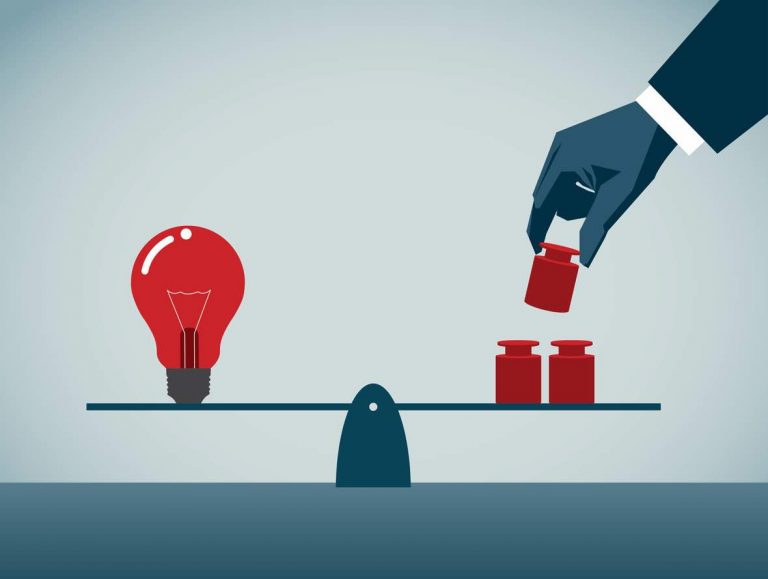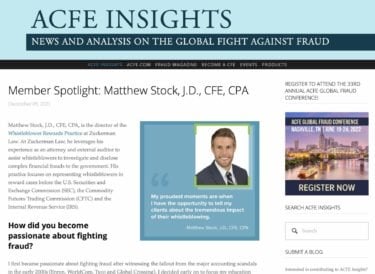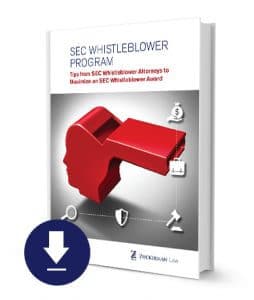How the SEC Determines the Amount of an SEC Whistleblower Award
Many factors affect the amount of an award. The SEC may increase the amount of an award based on the following factors:
- The significance of the tip to the success of any proceeding brought against wrongdoers. A tip’s significance depends on, for example:
- the nature of the reported information, including whether the information’s reliability and completeness allowed the SEC to conserve resources; and
- the degree to which the information supported one or more successful claims brought by the SEC or related actions brought by other regulatory or law-enforcement authorities.
- The extent of the assistance that you and your legal representative provided in the SEC action or related action. Considerations include:
- whether you provided ongoing, extensive, and timely cooperation and assistance (including when the whistleblower or their attorney provides industry-specific knowledge and expertise);
- the timeliness of your initial report to the SEC or to your employer;
- the resources conserved because of your assistance;
- whether you appropriately encouraged or authorized others, who might otherwise not have participated in the investigation or related action, to assist SEC staff;
- your efforts to remediate the harm caused by the violations; and
- any unique hardships you experienced as a result of blowing the whistle.
- The SEC’s law-enforcement interest in deterring the specific violation. Consider factors such as:
- how much an award enhances the SEC’s ability to enforce the federal securities laws and protect investors;
- the degree to which an award encourages the submission of high-quality information;
- whether the specific violation is an SEC priority; and
- the dangers of the specific violation to investors.
- Whether, and the extent to which, you participated in your company’s internal compliance and reporting systems. Think about:
- whether you reported internally before, or at the same time as, you reported to the SEC; and
- whether you assisted any internal investigation concerning the violation.
Conversely, the SEC may reduce the amount of an award based on these considerations:
- If you participated in, or were culpable for, the securities-law violation(s) you reported. Consider the following:
- your role in the violation;
- your education, training, experience, and position of responsibility at the time the violation occurred;
- whether you acted knowingly and intentionally;
- whether you financially benefitted from the violation;
- whether you committed a violation in the past;
- the egregiousness of the underlying violation; and
- whether you knowingly interfered with the SEC’s investigation of the violation.
- If you unreasonably delayed reporting the violation(s) to the SEC. This determination is based on:
- whether you failed to take reasonable steps to report or prevent the violation from occurring or continuing;
- whether you were aware of the violation but reported to the SEC only after learning of an investigation into the misconduct; and
- whether there was a legitimate reason for you to delay reporting the violation.
- If you interfered with your company’s internal compliance and reporting systems. Consider whether you knowingly:
- interfered with your company’s reporting systems to prevent or delay detection of the violation; or
- made materially false statements, or provided false documents, to hinder your company’s ability to detect, investigate, or remediate the violation.
Note that Rule 21F-6(c) establishes a presumption of a statutory maximum award of 30% where (1) the maximum award would be $5 million or less; (2) none of the negative award factors under Rule 21F-6(b)–i.e., culpability, unreasonable reporting delay, or interference with an internal compliance and reporting system–are present; and (3) the award claim does not trigger Rule 21F-16. The SEC may depart from the presumption if (1) the assistance provided by the whistleblower was, “under the relevant facts and circumstances, limited,” or (2) a maximum award “would be inconsistent with the public interest, the promotion of investor protection, or the objectives of the whistleblower program.”
Policy Objectives of SEC Whistleblower Award Factors
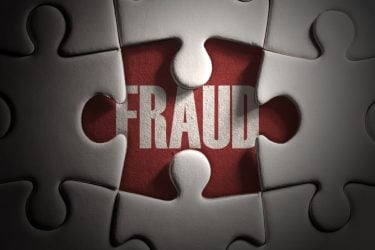
The rules also encourage whistleblowers to work with the SEC as the SEC investigates and litigates enforcement actions, which should provide the benefit of enhanced SEC enforcement of the Federal securities laws. For example, Rule 21F-6(a)(2) provides that, in setting the award percentage, we will consider the assistance the whistleblower provided us. To complement this, Rule 21F-17(a) makes it unlawful for another person to take action that impedes a whistleblower’s efforts to communicate with the SEC. Likewise, Rule 21F-17(b), by authorizing communications between SEC staff and a whistleblower without seeking consent of the counsel of an entity with whom the whistleblower is employed, has the benefit of encouraging whistleblowers to communicate with the SEC without the fear that their communications will lead to disclosure of their identity to their employer. The rules provide benefits by ensuring that whistleblowers are able to work with the Commission as it takes actions in response to possible securities law violations, and thus justify any costs on companies.
Most SEC whistleblower award recipients provide assistance to the SEC beyond filing a TCR, but submitting a TCR can be sufficient to qualify for an award. See Release No. 100068 (May 7, 2024) (“Although Claimant did not provide additional assistance after submission of Claimant’s tip, Claimant expeditiously submitted the tip, which included several documents, the information was closely related to the conduct in the Covered Action, the information alerted Commission staff to the conduct, and the staff opened the investigation after learning the information.”).
How the SEC Determines the Amount of an SEC Whistleblower Award
OFFICE OF THE WHISTLEBLOWER GUIDANCE FOR WHISTLEBLOWER AWARD DETERMINATIONSSEC Whistleblower Law Firm
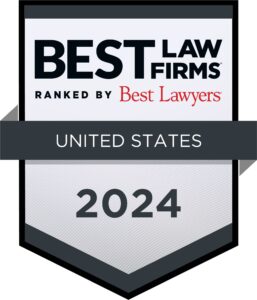
Our effective advocacy for the whistleblowers that we are privileged to represent has resulted in substantial awards for our clients. In 2021, we obtained awards for three SEC whistleblowers. The orders announcing those awards note our clients’ significant assistance to SEC staff that led to SEC enforcement actions and enabled the SEC to conserve resources.
Recently the Association of Certified Fraud Examiners published a profile of SEC whistleblower lawyer Matt Stock’s success working with whistleblowers to fight fraud:
Click below to hear SEC whistleblower lawyer Matt Stock’s tips for SEC whistleblowers:
To learn more about the SEC Whistleblower Program, download Zuckerman Law’s eBook: SEC Whistleblower Program: Tips from SEC Whistleblower Attorneys to Maximize an SEC Whistleblower Award:
Key Factor Determining SEC Whistleblower Award
The FY 2021 report of the SEC Whistleblower Program provides some insight into the relative weight of the award factors:
“When the factors are applied, the significance of the whistleblower’s information is an important consideration. It continues to be a key driver of the award percentage, and is often the most important factor in apportioning award amounts between two or more meritorious claimants. The Commission often considers whether the whistleblower’s information relates to all or only some of the charged conduct. The quality of the information can also be an important consideration, including how quickly it was received.
The assistance provided by whistleblowers was another important factor that was positively assessed by the Commission in FY 2021. Whistleblowers often provide substantial assistance to the Enforcement staff during the investigation, including meeting with staff and identifying key witnesses and documents, which can conserve significant staff time and resources. Though a whistleblower’s assistance will be judged based on the facts and circumstances of each case, in one notable instance, the Commission recognized the extraordinary assistance of one whistleblower who, while facing grave financial pressures, flew to another country to provide important information to Enforcement staff.”
SEC Whistleblower Lawyers
Tips to Qualify for an SEC Whistleblower Bounty
SEC Whistleblower Bounties
How to Successfully Navigate the SEC Whistleblower Process
Rationale for Maximum Statutory Award Percentage in Most Awards of $5M or Less
The September 2020 SEC release (Release No. 34-89963) adopting amendments to the rules governing the SEC Whistleblower Program explains the rationale for Rule 21F-6(c):
whistleblower_lawyers_012017_infographicIn selecting $5 million as the ceiling for the new rule’s application, we considered the fact that a majority of awards should, based on historical experience, be subject to this new rule. We believe there will be gains in efficiency from streamlining the award determination process for awards where the whistleblower did not trigger any of the negative award factors in Exchange Act Rule 6(b). In this category of cases, experience with the program demonstrates that there is no significant programmatic value in expending time and effort weighing minor increases or reductions to the Award Amount. Further, we believe application of this rule will save the majority of meritorious whistleblowers time and effort in explaining what they believe is the appropriate Award Amount in their award applications and in any subsequent response the whistleblower might file in response to a preliminary determination. Moreover, providing increased transparency, efficiency and clarity for this wide range of awards should help to further incentivize individuals to come forward because they can have more comfort, provided the criteria for the rule’s application are met, that they may receive an award that is at the statutory maximum.
Second, we have revised the criteria for eligibility of the rule to allow more claimants to potentially receive the maximum statutory award. Consistent with the proposed rule, to be eligible for application of the new rule a claimant must not have acted in such a manner that he or she triggered the negative award factors specified in either Rule 21F-6(b)(1) (culpability in connection with the securities law violation) or Rule 21F-6(b)(3) (malfeasance in connection with an internal compliance program) with respect to the claimant’s award application, and the claimant must not have acted in a manner that triggers Rule 21F-16 (concerning awards to whistleblowers who engage in highly culpable misconduct). In a change from the proposed rule, a claimant’s unreasonable delay under Rule 21F-6(b)(2) will not automatically disqualify the individual from receiving the enhancement under the new rule. Rather, the Commission in certain cases may exercise its discretion to allow a claimant to receive the benefit of the statutory maximum authorized by this rule notwithstanding his or her unreasonable delay, where the Commission determines that it is consistent with the public interest, the promotion of investor protection, and the objectives of the whistleblower program. Although we anticipate that this discretionary authority will not be routinely used where unreasonable delay has occurred, it will be available to the Commission where the public interest, investor protection and programmatic considerations counsel in favor of allowing the claimant to receive the statutory maximum.110
Third, subject to the below exceptions, the new rule embodies a presumption that the Commission will pay a meritorious claimant the statutory maximum amount where none of the negative award criteria specified in Rule 21F-6(b)– i.e., culpability, unreasonable reporting delay, or interference with a company’s internal compliance processes or reporting program–are implicated and the award claim does not trigger Rule 21F-16 (concerning awards to whistleblowers who engage in culpable conduct).
Fourth, consistent with the presumption of the rule’s applicability, an otherwise eligible claimant will not receive the statutory maximum if the Commission determines in its discretion that either: (1) the claimant’s assistance as assessed by the Commission under Rule 21F-6(a) was, under the relevant facts and circumstances, limited; or (2) the Commission determines that providing the statutory maximum in the particular matter would be inconsistent with the public interest, investor protection or the objectives of the whistleblower program (the “Exclusions”). These two Exclusions–which are the only means by which the presumption discussed above may be overcome–are intended to preserve the Commission’s discretion to deny a statutory-maximum enhancement in situations where doing so is consistent with the program’s overall goals.
The first Exclusion, for example, will allow the Commission discretion to deny a statutory-maximum enhancement where it determines that the assistance provided by the whistleblower was limited, with the degree of assistance provided by the whistleblower to be assessed in accordance with Rule 21F-6(a). This exclusion is consistent with prior past Commission practice in the case of limited assistance. Based on experience with the program, the Commission does not expect the presumption to be overcome by this Exclusion in the vast majority of circumstances.
The second discretionary Exclusion will preserve the Commission’s discretion to deny a statutory-maximum enhancement where relevant circumstances counsel against an enhancement. As an example, if the claimant has engaged in securities-law violations that were unrelated to the conduct that formed the basis for the covered action, the Commission could (in its discretion) exclude the claimant from receiving a statutory-maximum enhancement.
Fifth, although we anticipate that the Commission should have little difficulty applying the presumptive enhancement afforded by Rule 21F-6(c) in cases involving a single meritorious whistleblower, the new rule recognizes that there are cases that will involve multiple meritorious whistleblowers. Where at least one of the multiple meritorious whistleblowers would qualify for the presumption if that individual were the sole meritorious whistleblower, the new rule will operate to ensure that the total aggregate award paid to all meritorious whistleblowers is the statutory maximum. But because these cases could involve any number of meritorious whistleblowers and because these cases could reflect any number of whistleblowers that might qualify for the enhancement rule were they the only whistleblower in the matter, the new rule provides flexibility in how the Commission should allocate the statutory maximum Award Amount in these instances. Nonetheless, the rule requires that in allocating that amount among the meritorious claimants, the Commission will consider all relevant facts.111
In adopting this rule, we concur with those commenters who expressed the view that this new provision could help to further incentivize whistleblowers to come forward to the Commission. Contrary to what some commenters suggested, we believe that we are significantly increasing certainty. When there are no negative award factors present and the statutory maximum award of 30 percent is $5 million or less, there will be a presumption in favor of an Award Amount at the statutory maximum, subject to the Exclusions.112 Thus, we believe that this new rule will likely increase–not decrease–a reasonable individual’s willingness to report potential securities-law violations.113
Lastly, we agree with the commenter that suggested that the Commission already possesses discretionary authority to increase any award to the statutory maximum. But expressly setting forth the specific terms and eligibility criteria in the new rule should help increase the public’s confidence that the Commission will presumptively set the Award Amount at the statutory maximum in those cases where none of the negative award criteria specified in Rule 21F-6(b)(2) are present, the statutory maximum award of 30 percent is $5 million or less, and the Exclusions are not applicable.114
The SEC will consider many factors when determining the amount of an award based off the unique facts and circumstances of each case. The SEC may increase an award percentage based on the significance of the information that the whistle blower provided, the extent of the whistle blower’s assistance in their investigation, the SEC’s interest in deterring that specific kind of violation, and whether or not the whistle blower participated in the company’s internal compliance system. The SEC may also reduce an award if the individual was culpable for the specific violation or had some involvement. The SEC may also reduce it if there is unreasonable delay in reporting to the SEC. Finally, the SEC may also reduce an award if the individual impeded with the company’s internal compliance system prior to submitting information to the SEC.
Note that the SEC can reduce an award if new information comes to light after they issue a preliminary determination. See https://www.sec.gov/files/rules/other/2024/34-100263.pdf.

